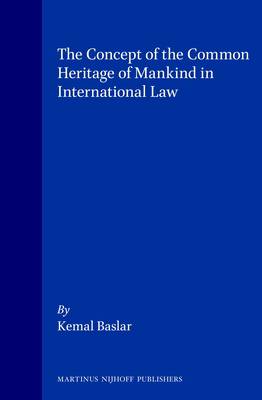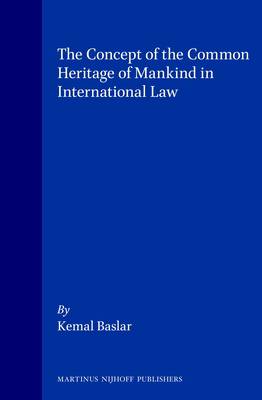
- Afhalen na 1 uur in een winkel met voorraad
- Gratis thuislevering in België vanaf € 30
- Ruim aanbod met 7 miljoen producten
- Afhalen na 1 uur in een winkel met voorraad
- Gratis thuislevering in België vanaf € 30
- Ruim aanbod met 7 miljoen producten
Zoeken
The Concept of the Common Heritage of Mankind in International Law
Kemal Baslar
€ 439,95
+ 879 punten
Omschrijving
The concept of the common heritage of mankind is one of the most extraordinary developments in recent intellectual history and one of the most revolutionary and radical legal concepts to have emerged in recent decades. The year 1997 marks the thirtieth anniversary of the advent of the concept in the domain of public international law. Ever since its emergence, it has become evident that no other concept, notion, principle or doctrine has brought as much intensive debate, controversy, confrontation and speculation as the common heritage phenomenon did. This is because it is a philosophical idea that questions the regimes of globally important resources regardless of their situation, and requires major changes in the world to apply its provisions. In other words, the application and enforcement of the common heritage of mankind require a critical reexamination of many well-established principles and doctrines of classical international law, such as acquisition of territory, consent-based sources of international law, sovereignty, equality, resource allocation and international personality.
This book aims to explore the legal theory and implications of the concept of the common heritage of mankind. It addresses almost all aspects of the concept in the light of the experience of three decades. The author takes into account the elements of the common heritage concept in the fields of jurisprudence, outer space law, the law of the sea, the law of Antarctica, international environmental law, human rights and general principles of public international law. It tries to develop a normative framework through which the concept may offer alternatives for the governance of the global commons.
This book aims to explore the legal theory and implications of the concept of the common heritage of mankind. It addresses almost all aspects of the concept in the light of the experience of three decades. The author takes into account the elements of the common heritage concept in the fields of jurisprudence, outer space law, the law of the sea, the law of Antarctica, international environmental law, human rights and general principles of public international law. It tries to develop a normative framework through which the concept may offer alternatives for the governance of the global commons.
Specificaties
Betrokkenen
- Auteur(s):
- Uitgeverij:
Inhoud
- Aantal bladzijden:
- 460
- Taal:
- Engels
- Reeks:
- Reeksnummer:
- nr. 30
Eigenschappen
- Productcode (EAN):
- 9789041105059
- Verschijningsdatum:
- 1/12/1997
- Uitvoering:
- Hardcover
- Formaat:
- Genaaid
- Afmetingen:
- 171 mm x 244 mm
- Gewicht:
- 830 g

Alleen bij Standaard Boekhandel
+ 879 punten op je klantenkaart van Standaard Boekhandel
Beoordelingen
We publiceren alleen reviews die voldoen aan de voorwaarden voor reviews. Bekijk onze voorwaarden voor reviews.








